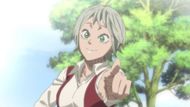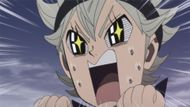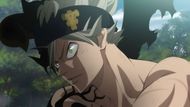Black Clover has built much of its narrative around the idea of forging your path regardless of birthright. Asta embodies this philosophy better than anyone. Born without magic in a world where mana determines status, he climbed his way to the top with grit, training, and the unlikely power of Anti-Magic. Yet, one mystery still lingers: His parentage.
We know about his mother, Richita, but the story has left his father’s identity completely unaddressed. So, why does Asta resemble his mother so strongly? And is Yuki Tabata deliberately withholding the truth about his father for a big reveal, or does it simply not matter to the story of Black Clover?

Asta’s father has been completely absent from the narrative. Not a single flashback, not even a hint. This absence raises two possibilities:
- The father’s identity is meant for a late reveal
- If this is the case, Tabata may be saving the father for an endgame twist - perhaps tying him to devils, royalty, or even Astaroth, the missing Supreme Devil. After all, the similarity between “Asta” and “Astaroth” has been too on-the-nose for fans to ignore.
- The father doesn’t matter
- The other option is that Asta’s father is deliberately irrelevant, a nobody whose identity has no bearing on the story. This would strengthen Asta’s “self-made” narrative, showing that he didn’t inherit greatness but built it himself.
Both directions would make sense given Black Clover’s themes. The real question is which message Tabata wants to emphasize in the final arc.
The case for a “regular dad”

Many fans lean towards the theory that Asta’s father was just an ordinary man. This avoids the “Naruto problem,” where the underdog narrative is retroactively undercut by a reveal that the protagonist is secretly the son of a legendary figure.
Asta’s whole appeal has always been that he’s not a “chosen one.” Yes, he has Anti-Magic, but he earned mastery over it through relentless training, not because he was destined by lineage.
If his father turns out to be just a farmer, or even a nameless drifter, that would underline Black Clover’s recurring message: Your origin doesn’t define you. Revealing his father as “just some guy” would be a bold statement against the cliché of hidden royal bloodlines.
The case for a big reveal by Tabata in Black Clover

On the other hand, Black Clover has flirted with destiny and hidden heritage before, most notably with Yuno. Initially introduced as an orphan like Asta, Yuno was later revealed to be the prince of the Spade Kingdom.
While some fans were disappointed with this twist (seeing it as undermining the “commoner can rise” theme), it did open up more world-building opportunities. For Asta, Tabata may be saving something similar. Several clues hint at a possible connection between Asta and Astaroth, the missing Supreme Devil of Time Magic:
- Asta’s name is derived from “Astaroth.”
- The suspicious absence of Astaroth in the story, despite being critical to devil lore.
- The Witch Queen’s cryptic comments about Asta’s bloodline.
If Tabata reveals that Asta is somehow tied to Astaroth, whether as his son, reincarnation, or experiment, it would provide a lore-heavy explanation for why he is so unique in the world. The danger, of course, is that this risks overshadowing his “hard work over destiny” theme.
Final thoughts
So, why does Asta look so much like his mother in Black Clover? Because Tabata wanted the connection between them to be immediate, undeniable, and symbolic. Every resemblance reinforces that Richita lives on through him, both in appearance and spirit.
As for the father? It all depends on what kind of ending Tabata envisions for Black Clover.
- If he wants to lean into destiny and lore, we might see a reveal tying Asta to Astaroth or another major figure.
- If he wants to emphasize the underdog theme to the very end, the father will remain unimportant, a nobody whose absence only made Asta stronger.
I lean toward the second option. Asta’s story shines brightest when it focuses on his determination, not his bloodline. Giving him a “legendary dad” would risk diluting the message that’s defined him since chapter one: hard work, not heritage, is what makes a true Wizard King.
